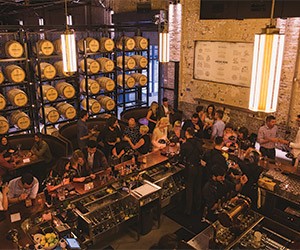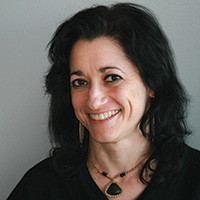Whether sampling the wines of New Zealand and Australia, learning the art of sushi-making in Japan or embarking on a Hong Kong foodie tour, the Asia-Pacific region tempts culinary aficionados with its array of spices and unique flavors.
Australia
Known for its 60 designated wine regions, Australia also prides itself on its top-quality, locally inspired cuisine.
“Australia’s approach to food and wine respects tradition, while seeking to challenge it,” said Penny Lion, Tourism Australia’s executive general manager of events. “The result is produce-driven, fresh and innovative cuisine paired beautifully with wines that regularly gather accolades and devotees.”
Examples include Melbourne restaurants Attica and Brae, which were both featured on The World’s 50 Best Restaurant awards held in Melbourne this year. Brae sources many ingredients from an on-site organic garden, while Attica features unique ingredients to Australia, such as wattleseed, kangaroo and quandong.
Nearby Melbourne, Yarra Valley’s Oakridge winery offers space for groups of up to 150 and classes in pickling, an introduction to indigenous ingredients, grape-stomping lessons and blind tastings.
A short drive from Sydney, Archie Rose Distilling Co. provides tours followed by a Blend Your Own Gin class, using native Australian botanicals. Private classes are available for up to 120.
Sydney Seafood School conducts a wide range of classes for groups, including the school’s most popular class, Seafood BBQ.
New Zealand
“New Zealand’s cuisine is all about showcasing local produce and fresh flavors,” said Alexa Bennett, business events manager, Tourism New Zealand. “Farm-to-table may be a recent trend in the U.S., but in New Zealand it has always been a way of life.”
Auckland features some of the country’s most eclectic food offerings.
“Auckland’s vibrant food and wine scene serves up something for every taste—the freshest New Zealand produce, mouth-watering seafood, Pacific Rim flavors, islands of wine, and cuisine from every corner of the world,” said Auckland Convention Bureau Manager Anna Hayward.
Gourmet central city walking tours in Auckland are open to groups, as are myriad cooking classes, including learning how to make mozzarella.
Some of the top restaurants in Queens-town regularly collaborate with local wineries to create degustation dinners paired with vertical tastings, and winemakers are often on hand at cellar door bistros to talk visitors through their creations. Millbrook Resort, Eichardt’s Private Hotel and the Crowne Plaza have all offered these experiences with wine, beer and whiskey.
Foraging is also trending in Queenstown with restaurant’s Rata and The Grille by Eichardt’s both including it in their menus.
Japan
Experiencing Japanese cuisine is essential to truly experiencing Japanese culture, according to Kay Allen, senior marketing specialist, Japan National Tourism Organization, L.A. Office.
“Many of the customs surrounding food culture in Japan stem from the traditional concept of hospitality, or omotenashi, and the question of how to best create the most welcoming environment for the guest,” she said.
One of the best ways for groups to understand Japan’s culinary culture is partaking in cooking classes. Tsukiji Cooking offers group classes in English, using seasonal ingredients directly from the Tsukiji Market, the largest wholesale market for fish, meat and produce in central Tokyo. Sushi-making classes are also available.
PageBreakAnother essential is sake tasting in Kobe’s Nada district, or a visit to learn about sake brewing at Kobe’s Kiku-Masamune Sake Brewery Museum.
Tea tasting is also integral to Japanese culture. Tokyo’s Sakurai Tea Experience incorporates sampling a variety of Japanese teas with offering-tea infused edibles.
Hong Kong
“Time and time again, Hong Kong has proven to be the culinary capital of Asia, with tens of thousands of eateries running the gamut from luxurious Michelin-star restaurants to gourmet street food locations,” said Bill Flora, director, USA, Hong Kong Tourism Board. “In recent years we’ve seen more farm-to-table concepts, offering sustainable dining as well as several restaurants participating in Hong Kong’s Green Monday initiative, introducing more refined and vegetarian-friendly menus, creating a diverse and unique appeal for group outings.”
Cooking classes are popular throughout Hong Kong, such as InterContinental Hong Kong’s series Cooking with the Culinary Stars. Attendees can cook with celebrated chefs from the hotel’s restaurants, such as the 2-Michelin Star Yan Toh Heen and Rech by Alain Ducasse.
Groups can sail aboard Aqua Luna, one of the last remaining red-sail Chinese junk boats, for a cocktail and dinner with skyline views. Hong Kong Foodie Tours accommodates groups, as does Hong Kong’s Taste Library, located at PMQ, a creative complex in Old Town Central, where attendees can cook and read books about food culture.
Fall brings the Wine and Dine Festival, a three-day affair in Victoria Harbour.
Taiwan
“Taiwan is truly a foodie paradise, with an amazing variety of culinary options ranging from mouthwatering street food to eye-opening fine-dining restaurants by Michelin-starred chefs such as Andre Chiang,” said Linda Lin, director of the Taiwan Tourism Bureau, San Francisco. “The Taiwanese cuisine has always been about farm-to-table and the importance of terroir.”
Cooking classes are popular for groups, including cooking and foraging with an aboriginal tribe at Cidal Hunter School. Groups can also meet the chef at restaurants like Silks Palace and Xiang-Yan Teppanyaki, featuring farm-to-table ingredients.
The annual Taiwan Culinary Exhibition is also an excellent opportunity for epicurean and industry professionals to explore local ingredients and meet with inspiring Taiwanese chefs, according to Lin.
South Korea
Whether it’s traditional bibimbap or samgyetang—ginseng chicken soup known for its curative properties—food is key to Korean culture.
Groups can partake in teambuilding exercises or excursions to locations like K-Style Hub in Seoul, which offers a variety of activities, including culinary courses and an exhibition on Korean cuisine and ingredients.
O’ngo Food Communications offers culinary tours and cooking classes to promote Korean food and culture. Another venue is Jeong Gang Won, The Institute for Korean Traditional Cuisine, near Seoul.
There is a full range of Michelin-star restaurants for exclusive experiences, such as Tony Yoo’s Dooreyoo, featuring one of the most acclaimed chefs in Korea, Tony Yoo.
India
There is a trend for groups visiting India to book a cooking class as part of the tour, according to Sandhya Haridas, assistant director for India Tourism.
Small boutique cooking classes with hands-on meal preparation are popular with companies like Saffron Palate, and cities like Delhi offer many food tasting tours.
In addition, most hotels in main cities such as Delhi, Mumbai and Bangalore have world-famous restaurants, and on request can set up meetings with the chef.
In India’s south, especially in Kerala, there are many resorts that offer a spice trail where groups can learn about the different spices from the region.
Thailand
“Thai food, whether preparing it in a traditional, outdoor kitchen as part of a teambuilding activity or simply enjoying a variety of flavors from the different parts of Thailand, is a cornerstone to many incentive programs,” said Nooch Homrossukhon, director of meetings and incentives with the Thailand Convention & Exhibition Bureau.
Options include Blue Elephant, a fine-dining restaurant and cooking school with locations in Bangkok and Phuket. Groups can accompany the local chef to a fresh market to shop for the ingredients and then prep their meals as a team.
Four Seasons Chiang Mai also features an outdoor cooking school on-property. Groups can host everything from cook-offs to lessons in fruit carving.
Malaysia
“The food trend is Malaysia is heavily influenced by our unique multicultural diversity,” said Ho Yoke Ping, general manager of business events for the Malaysia Convention & Exhibition Bureau (MyCEB). “Our local chefs are inspired by Malaysia’s street-food scene, and they have cooked up various creative new ideas.”
Hosting the Worldchefs Congress & Expo next year in Kuala Lumpur will further boost Malaysia’s credentials as one of the global foodie destinations, Ping said.
For culinary classes, The Cooking House in Kuala Lumpur offers teambuilding options ranging from canape classes to mooncake making. At Penang’s Tropical Spice Garden, groups can partake in cooking classes. After-hours, The Westin Langkawi Resort & Spa offers a cocktail-making activity on a private candlelit jetty stretching out into the Andaman Sea, while The Andaman resort in Langkawi offers the Rainforest Master Chef experience.







